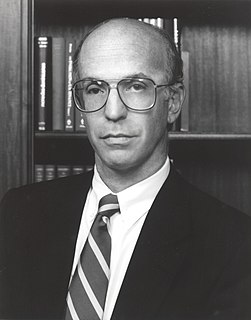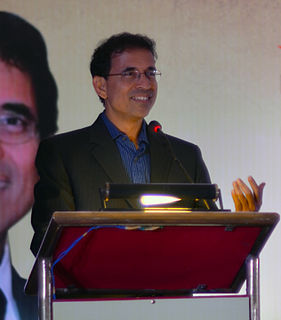A Quote by Paul Romer
Good law includes a commitment to transparency and an insistence that no person or entity with a conflict of interest should have influence on public policy decisions.
Related Quotes
But, that’s the whole point of corporatization - to try to remove the public from making decisions over their own fate, to limit the public arena, to control opinion, to make sure that the fundamental decisions that determine how the world is going to be run - which includes production, commerce, distribution, thought, social policy, foreign policy, everything - are not in the hands of the public, but rather in the hands of highly concentrated private power. In effect, tyranny unaccountable to the public.
The same individuals who are doing primary research in the role of humans on the climate system are then permitted to lead the [IPCC] assessment! There should be an outcry on this obvious conflict of interest, but to date either few recognize this conflict, or see that since the recommendations of the IPCC fit their policy and political agenda, they chose to ignore this conflict. In either case, scientific rigor has been sacrificed and poor policy and political decisions will inevitably follow.
RTE was set up by legislation as an instrument of public policy, and, as such is responsible to the government. The government have overall responsibility for its conduct, and especially the obligation to ensure that its programmes do not offend against the public interest or conflict with national policy as defined in legislation. To this extent the government rejected the view that RTE should be, either generally or in regard to its current affairs programmes, completely independent of government supervision.
Transparency concerning the Federal Reserve's conduct of monetary policy is desirable because better public understanding enhances the effectiveness of policy. More important, however, is that transparent communications reflect the Federal Reserve's commitment to accountability within our democratic system of government.
Now, it's high time for all those that have an influence on the parties with the conflict to understand that it is in the interest of everybody to put an end to this conflict. But this kind of persuasion, this kind of intense pressure, I believe it's my duty to do, even if I recognize that the contradictions and the different perceptions of interest that exist are making it very difficult.
Mandatory auditor rotation is designed to address a potential conflict of interest between a public company and its auditor. Because an auditor is hired and paid by the public company it audits, the auditor's desire to maintain a good relationship with its client could conflict with its duty to rigorously question the client's financial statements.





































